#If only because they actually acknowledged Kevin’s trauma and mental issues
Explore tagged Tumblr posts
Text
I don’t consume the franchise’s media because it’s “good”, I consume it because I got emotionally attached to the characters as a child and now I can’t let go
#This is high key about Wakfu and Ben 10#Both shows’ writing are incredibly inconsistent in quality but goddamn if their characters aren’t more precious than gold to me#Tho to be fair the Wakfu webtoon has been consistently well done so far#And the Ben 10 reboot is better than people give it credit for#If only because they actually acknowledged Kevin’s trauma and mental issues#Maybe if we get that adult series the writers want we’ll actually see him go “y’know what? I was a drug addict at 11. That’s fucked up”#And go get some weird alien therapy for it
16 notes
·
View notes
Text
Okay so I mentioned last night that Argit would be harder to get into and through therapy than Kevin, and I did promise y’all a post on his mental health and shit, at least as pertains my own works, so here we go.
Argit does not do trauma. He has trauma, but he doesn’t acknowledge it. As far he’s concerned he was born with a little box in his gut and from his time in the pouch to his present day every time some sort’ve trauma tries to set in he would shove it into the box, never to be looked at or considered. The only acceptation to this is shit dealing with his parents and that’s mostly just because it wouldn’t fit in the box. It used to go in the box but then his Ma mentioned him being the favorite for being just like her and that was just too much to stuff in there.
As you can guess, it’s not a healthy mindset. He does not process shit. Even the shit with his parents, he steadfastly refuses to actually process. There will be no sitting down with his trauma, he doesn’t need to, he’s fine, pay no attention to the man behind the curtain, so on and so forth.
And it’s not like he’s not affected by this shit. He still has issues as a result. He’ll even acknowledge that some of these issues exist. Yes, he has anxiety problems, and anxiety and panic attacks, and nightmares, and he’s a stress-eater, and maybe he struggles with trusting people and not being in control of situations, but you’re not gonna to get him to say why. It’s totally not because he grew up in the fucking Null Void. Or because his parents were criminally neglectful at their best and offhandedly abusive at their worst. Or because he ended up selling his own mother on the black market. Or because he was subjected to illegal experimentation and kept in a cage as a child. Or because he’s been through every struggle and horror a kid wandering the galaxy without adult supervision can experience. Or because he watched his best friend die that one time. Or because he’s killed seven people and will probably kill more. Of course not.
He’s the way he is because that’s just the way he is, as far as he’s concerned nothing he’s been through had any effect.
Things happened, they went in the box, there was no effect, he feels nothing regarding them, they are not to be acknowledged. On the rare case one is acknowledged, it still had no effect, he feels nothing regarding it, perfectly normal facet of life, no issues. A plan that totally is not going to eventually backfire when the box gets overloaded and cause him to either snap in a way that makes Kevin’s spirals seem mellow or completely shut down as a person. Definitely. That is not at all a risk. Just stuff that concept into the box with everything else.
It makes getting him to improve or at least get healthier so hard. The first step in fixing a problem is admitting there’s a problem to fix, and getting him to do so?
Let’s just say any therapist who takes him on is in for a long project and a struggle.
#headcanons#bencanons#kevin is more obviously traumatized and likely to have an *easier* time working on shit comparatively#he acknowledges his shit is fucked up and he feels a way about it- but *processing* his trauma is wibbly at best#argit keeps himself going through denial that he has trauma at all#be easier to pull teeth than get him to acknowledge he maybe has some things to unpack
3 notes
·
View notes
Text
A little late watching this week’s episode but I was so impressed, I’m going to talk about it anyway. Fair warning, this got longer than I intended it to.
This is Us has a reputation as an overly treacly kind of show, and for the most part that couldn’t be further from the truth. It’s a smart nuanced portrait of flawed characters, the relationships between them and how the effects of trauma can reverberate throughout the years. However, there have been times where the show has leaned into that preconception many have of it as a sappy show and when I heard the concept for this episode, “What if Jack had lived?” I’m not going to lie, I thought the show was going to go down that road. I needn’t have worried - they know what they’re doing.
No this wasn’t a tear jerking whitewashed episode about how great everything would have been if Jack never died, it was a deep dive into Randall, his anxieties and mental issues. The things he’s spent his whole suppressing and refusing to acknowledge. The Big 3 have all for so long blamed a lot of their problems on losing Jack, but for lack of a better way to phrase this, that was a convenient excuse. Obviously I’m not saying losing a parent is convenient or anything of course, but that it is understandable. It’s a concrete thing that you can point at and hold onto. A tangible reason for feeling bad, for things going wrong. You lose someone you love and it hurts. There’s no grey area there. To use a quote from Bojack Horseman “My mother is dead and everything is worse now.”
(Ironically in that case there was a lot of grey area but I won’t get into that in a This is Us post...but do yourself a favour and watch Free Churro - I’ve never gotten over that episode.)
It’s easy to understand the pain when it comes from losing your father. But what about if things are more complicated than that? That moment when the therapist - Pamela Adlon is such perfect casting by the way - calls bullshit on Randall’s Norman Rockwell style sanitised version of his life. Where he saves one father, solves his other father’s addiction problems and also cures his stomach cancer. No more Daddy issues means Randall would have no underlying issues to address (Crazy Ex Gf reference intended) and happy endings all around.
But that’s not how life works. Our pain and our issues tend to be a lot more complicated than that, and usually stem from many different factors. And for the most part, most of those factors are not under our control, and no matter how hard we try, they never will be. Not being able to accept that is and always has been Randall’s biggest problem. It’s frustrating as hell, but completely and utterly realistic that even though his therapist has pointed that out to him and he acknowledges that it may be true, he’s not going to change his entire sense of self overnight. One enlightening therapy session is not going to suddenly make him do a 180 on how he’s handled his thoughts and feelings his whole life.
So Randall does something very wrong. It’s wrong for Rebecca yes, but it’s also very much wrong for him. His therapist helps him to admit that he hasn’t addressed the resentment he still feels towards Rebecca. That while he made it seem like he’d moved on, he really just buried the pain he felt after that betrayal. He needs to talk to her about this. He should deal with these feelings with her.
We know what Randall should do. Dr. Leigh knows what he should do. Hell for a split second I think even Randall knows what he should do, but he doesn’t. He instead does what he’s been doing his whole life and clings tightly to the need to control things. Having an unpredictable confrontation with Rebecca where he has no idea if it would change things, make him feel any better at all or just destroy their relationship or...honestly I’m sure the many many possible roads a conversation about something so tangled and complicated, filled with love, lies, pain, good will and betrayal have all occurred to Randall. Hell he explores two of them in his what if? scenarios. Best case, he forgives her early, they remain close, he deduces she has Alzheimers early and saves her. Worst case, he resents her, falls out of her life and doesn’t return till her disease has progressed too far. Either way, it’s still about him and what he can do for her. It’s his job to fix it and he’s the only one who can. Just like Jack he’s a black and white kind of guy, he doesn’t do well with the grey areas.
So Randall decides not to talk to Rebecca about William. No instead he chooses to use these unresolved feelings to try and control the situation. It’s easier for him to wrap his mind around. And he can justify it by saying he’s doing it to save his mother’s life. But Randall you can’t control other people, and even if you can, even if you have the power to - like you do with Rebecca right now - you shouldn’t.
It’s complicated. Randall’s doing the wrong thing but he somehow simultaneously has the right and wrong motivation and intentions. I understand that he wants to save her but also he wants to control the situation. He can’t let things just play out...he needs to be a driving force. Oh Randall, don’t you know what they say about the road to hell?
This was one of the best written episodes of the show, and yes it made me feel a lot of things frustration, pain, sadness and unease among them, but not because of bad or lazy storytelling - the opposite actually. It feels completely natural and almost inevitable but I will say I don’t think I’ve ever felt as uneasy and on edge watching this show as I did when Randall started his phone call to Rebecca with “Mom I’ve been a good son” because you could tell exactly what Randall was about to do. Something he could never take back. But those last few seconds of the episode, I truly felt like my heart had dropped
Randall: I've been a good son, Mom. I've been a good son, and I've never asked you for anything. But I am asking you for this now. And I need you to say it. You are going to St. Louis. You are going to do this clinical trial.
Rebecca (Whispering): Okay. ( Shudders ) I will go to St. Louis, and I will do the trial.
This show man.
Couple of other things
- I just want to reiterate how much I love Pamela Adlon and how perfect she is as Dr. Leigh. Every moment was so good but to pick a random moment the one after Randall apologises for insulting her “cheap” shoes she dismisses him saying “Oh please, I live for this stuff.” Adlon’s delivery was gold.
- Beth talking about Watchmen “It took six episodes, but it finally makes sense.” I’m sure there’s no meta relevance of that to this show at all...(spoiler alert: there is)
- Kevin. Goddamn Kevin and Randall have a lot to sort through. In Randall’s worst case scenario, Kevin was the perfect son. He went into the family business with Jack, he helped Rebecca with the cooking. Jack gives a toast at Kevin’s wedding and tells a story about Kevin when he was 11 years old. He’s the centre of the family, as becomes clear when he loses his patience with Randall avoiding any family get together.
In Randall’s best case scenario, Jack gives a toast about 11 year old Randall at Randall’s wedding. Kevin doesn’t really play much of a part. In fact the only thing Randall really says to Kevin throughout the whole scenario is the very first line when Kevin asks if they lost everything in the fire
“You’re lucky you weren’t there.”
There’s a lot to be said about how Randall’s relationship to Kevin is also mired in his control issues. For a while now, Kevin’s been the only one who Randall could go to when he was losing control, the only one he was able to let see him that way. They’ve grown a lot closer, have been there for each other and done a lot of work on their relationship. The things is, Kevin’s also done a lot of work on himself. Those underlying issues that Randall isn’t addressing, Kevin has been forcing himself to deal with his own for a while now. As a result Kevin has become a stable presence, a rock that Rebecca and the family can lean on and rely on right now. For so long that was Randall’s job. Unfairly or not, he was Rebecca’s rock, and losing that at a time like this, where he also might be losing Rebecca, it’s bringing to the surface a lot of the resentment Randall still feels towards Kevin.
“You’re lucky you weren’t there.”
I have more to say on this but I’m going to wait and see where the finale is going to leave them. Plus this post is already way too long.
This episode really got to me.
#this is us#randall pearson#rebecca pearson#kevin pearson#just posting this for my own sanity at this point#my thoughts#this is us spoilers#long post for ts
46 notes
·
View notes
Photo
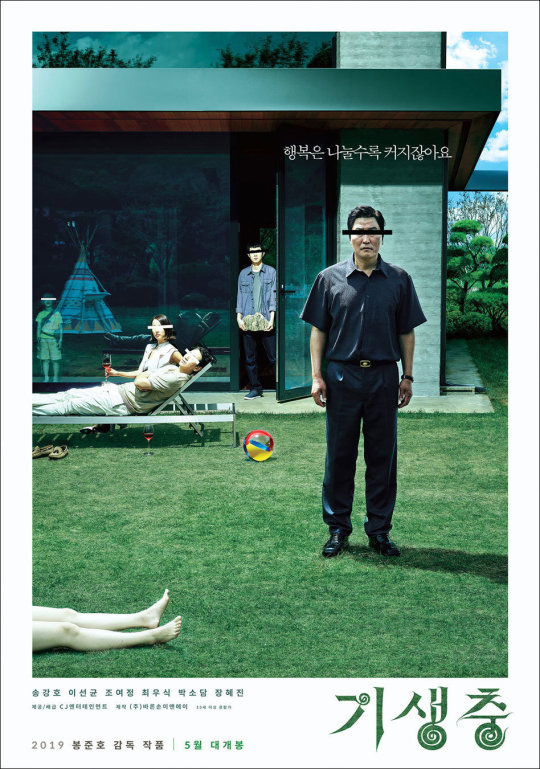
Parasite (2019) review: A Tale of Three Families
The Academy Awards don't mean that much to me. Most years I see only a handful (at most) of the nominated films, and rarely do I have a dog in the fight. This year, I'd only seen part of one Best Picture nominee (Once Upon a Time in Hollywood, losing interest about halfway through), but almost literally at the last moment (the afternoon of the day the Oscars were awarded), I watched Parasite.
I thought it was well-made and thought-provoking, and the awards it won were certainly deserved. It’s fascinating, nuanced, and entertaining. It’s slick and “accessible” to all audiences (although I suspect Koreans will pick up on aspects that others will not, similar to Roma). I'd read little about the film before I saw it, and have not read any critical analysis since then, so if the following repeats conventional wisdom, so be it. [Note: spoilers follow.]
There are many aspects of Parasite worthy of extended analysis, including the visual schema, the various references to the USA (including the two Kim children going by “Kevin” and “Jessica” in their positions in the Park household), and of course socio-economic class/conflict. However, I’ll focus here on the film’s depiction of family. Parasite is structured around three families: the struggling Kims, the wealthy Parks, and the family of the Park's housekeeper.
The Kims and the Parks each consist of 4 members: Mr. Kim, Mrs. Kim, grown son Ki-woo and grown daughter Ki-jung; Mr. Park, Mrs. Park, teen daughter Da-hye, and young son Da-song. The housekeeper Moon-gwang and her husband Geun-sae have no children. All of the major characters belong to one of these three groups; Ki-woo's friend Min appears briefly (and plays a key role in getting the plot started), and the Park family's chauffeur has a small part, in addition to some other minor characters.
The 3 families are presented in neither a wholly negative or positive light--any actions they take are done to protect or benefit the family, and are thus seen as justified. For example, Ki-woo essentially betrays his friend Min, who arranged for him to become Da-hye's tutor. Min does this out of friendship but he also trusts Ki-woo not to seduce Da-hye, because Min himself is romantically interested in her. Ki-woo almost immediately reneges on this promise (and pays for it later, getting bashed in the head with Min’s “scholar’s stone” gift). Later, the steps taken to remove the chauffeur (and replace him with Mr. Kim) and the housekeeper (so Mrs. Kim can take her place) are directly harmful to these individuals (whereas Ki-woo and Ki-jung got their positions with the Park family through deceit but no one lost their positions so the Kims could be hired). At one point the Kim family makes a passing reference to the chauffeur, assuring each other that he probably got "a better job," but they don't even try to do this when they engineer Moon-gwang's dismissal, and in fact utilise her potentially serious peach allergy to stigmatise her and thus achieve their desired outcome.
The first part of Parasite is structured as a humorous, "heist" story, as the Kim family schemes to improve their standard of living by obtaining positions in the Park household. However, the Kims are not robbing the Parks: they actually provide the services for which they've been contracted (well, Ki-jung is not exactly a qualified "art therapist," but she seems to get along with Da-song), and are not skimming from the household accounts or anything of this sort. As noted above, the means by which they secure their new jobs become increasingly dodgy, but the ultimate goal of their plan is not to defraud or steal from their employers.
As Parasite begins, Ki-Woo (aka "Kevin") seems set to be the protagonist, and he does ultimately have slightly more footage than his parents or sister, but the Kim family becomes a collective protagonist as the film goes on (with somewhat more emphasis given to Mr. Kim and Ki-Woo than to Mrs. Kim or Ki-jung, but a fair amount of time is spent on the whole family's interactions). It's never specifically stated what brought the Kim family to its current station in life: were they middle-class before, or have they always been living in a precarious economic state? Clearly, they are willing to work hard to improve their lot in life, but why can’t they find opportunities to do so?
The second family group in Parasite is the Parks. Mr. Park is a prosperous businessman, Mrs. Park occupies herself with her children and her social circle, Da-hye is cramming for her high school examinations, and Da-song is a hyper-active boy with a mysterious "trauma" in his past. Although the Parks pay handsomely for Da-hye's tutors, Da-song is the focus of his parents' attention. Is he, as Da-hye bitterly remarks, faking it? Later in the film, Mrs. Park orders a special dish (ram-don) prepared for Da-song; when he doesn't eat it, and Mr. Park also turns it down, Mrs. Park consumes it herself. Da-hye points out that she was never offered any: it's as if she doesn't exist. On the other hand, Da-hye seems to be a moody teen-ager who shuts herself up in her room a lot, so perhaps Mrs. Park simply forgot her daughter existed for a moment.
The Kims acknowledge the Parks are “nice” rich people, while making the observation that perhaps they’re nice because they’re rich. In other words, they can afford to be pleasant and generous, since they’re not in a frantic competition for their daily bread, unlike the Kim family (in one scene, Ki-woo practically begs for a part-time pizza delivery job). One trait of the Parks which ultimately has deadly ramifications is their fastidiousness. The Kims live in a crowded, roach-infested “semi-basement” that is literally flooded with sewage at one point, while the Parks live in a spotless modernistic mansion. Mr. Park is offended when his chauffeur apparently has sex in the back seat of the Park’s auto--not even in his “own” space, the front seat!--and leaves a pair of panties behind as evidence. Mrs. Park dons rubber gloves and uses tongs to pick up the underwear, and Mr. Park almost seems more upset by the unhygienic nature of his driver and the man’s violation of his (Mr. Park’s) personal space than by the act itself.
Mr. Park also remarks to his wife about Mr. Kim’s odor, comparing it to “boiling a dirty rag” and says he’s smelled the same thing on the subway. Young Da-song also detects and remarks upon the similarity of the personal odors of Ki-woo and Ki-jung, a breach of courtesy. During the birthday party massacre at the climax, Mr. Park grimaces when he has to move Geun-sae’s corpse to retrieve the keys to his car (it’s been previously established that Geun-sae’s subterranean life has resulted in an unpleasant body odor); Mr. Kim sees this and--having previously overheard his boss talking about Kim’s smell--is inspired to stab Mr. Park. Snobbish and classist to be sure, but believing “poor people smell bad” is hardly worthy of a death sentence.
The third family group in Parasite is revealed only in the second half of the film. Housekeeper Moon-gwang is fired when the Kim family convinces the Parks that the woman has tuberculosis, a contagious disease. Prior to this, the housekeeper is a neutral background figure, with no particular personality. However, she returns to the Park home and explains to Mrs. Kim (her replacement) that Moon-gwang’s husband has been living in a secret bunker underneath the house for several years. The shocked Mrs. Kim berates her predecessor but holds the moral high ground for only a few moments, until the Kim family full-employment conspiracy is revealed. This leads to conflict between the two under-class families, and ultimately to a protracted bloody denouement.
There are a few loose ends in the Moon-gwang/Geun-sae story. Possibly the Parks would not have hired Moon-gwang as a live-in housekeeper if they knew she was married (or wouldn’t have permitted her husband to live with her), and apparently her salary wasn’t sufficient to allow him to live alone (he’s unemployed, but then again so are the Kims as the film opens, and they have an apartment, shabby as it is). As noted earlier, I haven’t read any analysis of Parasite so I don’t know if the issue is raised at all (or raised and debunked), but there is a slight hint that Moon-gwang and her husband may be North Korean emigrants. In one scene, a manic Moon-gwang mimics a North Korean propaganda broadcaster, castigating the Kim family for their scheme to “defraud” the Parks; at another point, Geun-sae pointedly says he doesn’t qualify for a government pension.
Additionally, Moon-gwang indicates she’s been taking food to her husband and he’s been starving since she was fired, yet we see Geun-sae has the ability to enter the main house at will (in fact, he’s the “ghost” who traumatised Da-song several years before): why didn’t he simply do this (i.e., steal food from the pantry and refrigerator) when his wife failed to show up? In a clever bit of dialogue, Mr. Park earlier admitted Moon-gwang was a good housekeeper but she “ate enough for two people”--yet Moon-gwang indignantly tells Mrs. Kim she paid for her husband’s food out of her own salary. This changes the Moon-gwang/Geun-sae family dynamic: all the members of the Kim family contribute to their general welfare, Mr. Park is the (traditional, male) bread-winner in his family, but it’s Moon-gwang who supports her unemployed husband: he takes the dependent economic role of a child or a grown slacker offspring, living off his parent’s salary. Geun-sae is at once a pitiful and a weirdly creepy character, his long sojourn underground costing him his mental stability. He worships Mr. Park--who is (through the medium of Geun-sae’s wife) the "provider from up above," and his last word (to Park) is (in English) "Respect!" On repeat viewing, it appears Geun-sae deliberately attacked Ki-jung (after having already badly injured Ki-woo), since he then calls out "Chung-sook" (Mrs. Kim) and tries to stab her (but is defeated by the feisty Mrs. Kim, who runs him through with a sausage-laden sword).
Moon-gwang and Geun-sae wind up the losers in this three-way Korean Family Feud, killed by the Kim family; the Parks lose Mr. Park and possibly Da-song, while only Ki-jung of the Kims dies (although Ki-woo is badly beaten by Geun-sae, using the "scholar's stone" given him by Min). Why do the Kims "win"? Because, one might surmise, they're the family that is truly united--despite some occasional arguments, they stick together to the very end, whereas the Parks and Moon-gwang/Geun-sae are less cohesive, more dysfunctional, and have more "weak links" than the Kims--neither of the Park children is assertive and capable (a function of their age as well as their privileged upbringing--although Da-hye does step up to carry the injured Ki-woo to safety), and Moon-gwang and Geun-sae have no children (and Geun-sae is, as mentioned, somewhat emasculated by his living situation).
Parasite obviously deals with the issue of socio-economic class, viewed through a specifically Korean prism that outsiders are not privy to (What's the unemployment rate in Korea, etc.). However, equally important, the film seems to say, is family. The Parks aren’t obviously evil just because they’re rich, and their wealth doesn’t directly contribute to the misfortune that befalls them. Conversely, Moon-gwang loses her job and this removes the safety net she had been providing for herself and her unemployed husband: this is directly the fault of the Kim family. So, the underclass preys on itself, rather than uniting in solidarity?
I’ve now seen 4 Bong Joon-Ho films: The Host, Snowpiercer (I had some issues with the basic premise of this one), Okja, and Parasite. Parasite is the only one of these with no fantasy elements, which makes its themes somewhat more subtle, less didactic, and less overt. But the ideas are still there.
20 notes
·
View notes
Text
Project: Lessons in Humanity from a Future Physicist

Originally titled WADAA, Lessons in Humanity from a Future Physicist is basically my child. I’ve been working on this project for going on five years now, which makes it the oldest project I still write for. LIHFFP is pretty much unrecognizable from the original WADAA now. It’s a project that has grown as I have, moving from being full of melodrama and teenage angst to more low-key adult angst. Watching the project grow has been amazing.
LIHFFP is about a young man named Kam Suzuki who is in his first year of college at Miami University (the one in Ohio). The previous year was really rough for him and his twin brother, Vic, but he refuses to admit how much he’s been negatively impacted by the events of the past year and instead represses the hell out of his trauma in an attempt to become like his idol, Spock. LIHFFP follows Kam acknowledging and dealing with his trauma, among other issues he vehemently denies he has.
Like most New Adult books, LIHFFP deals with the usual themes: college, figuring out what to do with your life, figuring out who you are, and getting over past traumas, among other things.
The music I listen to includes my Official LIHFFP Playlist and The Front Bottoms. Lots of angsting over love, life, and nostalgia. It sets a really good mood for the book.
Now that we’ve gotten through the basic plot, let’s move onto the best part. Yes, the ~characters~.
These characters are some of the oldest, most fleshed-out I’ve ever created. I love writing for them and about them.
Kam Suzuki is a mess. He absolutely refuses to deal with any of his emotions and trauma because it “isn’t Spock-like”. Kam idolizes Spock like you wouldn’t believe, to the point where his repression of his mental health issues (specifically his PTSD). He knows it can be unhealthy, but he doesn’t care.
What he does care about are the people around him. Kam is really oblivious to a lot of social cues (he's on the spectrum), but he’s really sweet and empathetic. He loves his friends a lot, willing to be a therapist/best friend/whatever for the people closest to him, being probably the biggest Hufflepuff I’ve ever written for. He really is a sweetheart.
(He’s actually a little based off of one of my friends who loves Spock and Star Trek more than anything else, but Kam’s better at math. Sorry, Gray.)
Vic Suzuki is Kam’s twin brother. He’s very a very artistic and creative former emo kid with some serious depression and an eating disorder that he’s been coping really well with. He’s doing really well throughout the novel. He kind of considers himself a bad person because of some things he did when he was severely depressed, but he really isn’t a bad person. Vic is nice. He isn’t the same kind of selfless nice as Kam is, but he isn’t the monster he thinks he is. He’s someone who’s working through some serious problems.
Zach Amsel, or Zamsel, is Kam’s roommate and best friend. They’ve been best friends since middle school, both being awkward children that banded together. Zamsel has pretty severe anxiety and a terrible relationship with his girlfriend, Chai. He really lets people walk all over him and use him for whatever they want just so that they’ll like him. He's a genuinely wonderful and nice person, and he wants approval so desperately that he’s willing to bend over backwards for literally anyone else. Poor kid.
Gerard Shimmish is Vic’s best friend/boyfriend and a close friend of Kam’s. He’s this tiny, chubby man who likes baking and psychology. He’s about as empathetic as Kam is, but much better at dealing with mental health. Gerard is constantly trying to help other people with his “mental health expertise”, because he believes that, as a student of psychology, he is qualified to help people with their mental health. (He isn’t.) He means well. He can just be really overbearing. And busy. The only reason we see a lot of Gerard is because 1) he lives with the Suzuki family (it’s a long, homophobic story) and 2) he and Vic are basically inseparable when they’re together.
Chai Watson is a character. She’s full of anger and issues from her home life and childhood that she takes out on other people and the use of heavy drugs. Chai has had it rough. She’s like Kam, but worse. Like a cautionary tale for him.
She and Zamsel have dated for about three years, which is an eternity in the high school-college dating sphere. She didn’t start out so bad when they first started dating, slowly getting worse over time. I honestly get really sad when I write for Chai, because I know a lot about past Chai, who was a completely different, more tender person.
Ruth Spencer is robbed when it comes to time in the book. She’s this pretentious future English major who literally has no time for a life after all her extracurriculars. She and Gerard are the busiest characters, and because she doesn’t live with the Suzukis (what a shame). Ruth really seems to have her life together, at least from what we see of her.
Jessica McClain is Ruth’s girlfriend. She’s equally as busy as Ruth, mostly with athletics. Jessica can be a little (a lot) of an airhead, really forgetful and mentally far away from a lot of things. Please protect this cute gorl.
Kevin and Nikki are pretty cool. Kevin isn’t exactly a “lovable idiot”. He’s more of a “tolerable idiot”. He isn’t the brightest, and he’s someone who proudly wears the title of “fuckboy”. Nikki is more than done with everyone’s bullshit. She really couldn’t give less of a crap about almost everyone, and she wants you to know that. That being said, she can still be really maternal if she actually likes you as a person.
0 notes
Text
THE GREAT CRUNCHYROLL RE:ZERO REWATCH Prepares for Battle In Episodes 16-20
Hello again, and welcome to the penultimate installment of the GREAT CRUNCHYROLL RE:ZERO REWATCH hosted by me, David Lynn! Last time on Re:Zero, everything fell apart in spectacular fashion for Subaru, and he hasn't taken it well. This week we venture further into Subaru's self-destructive tendencies that last week established, but end up moving toward a resolution every party may be happy with. Most satisfylingly, the issues with Subaru that commenters Pure6Evil and Heavenspiercing brought up last week come to the forefront with the developments here. But how does our panel feel about it? Let's find out!
Let’s start with the biggest moment, the entirety of episode 18. Subaru’s self-destructive arc ever since the royal selection began comes to a head, and both he and Rem are forced to face their issues. Was this a satisfying payoff for you?
Kara: Yes… and no? From a purely fictional standpoint I really love the scene. The voice actors did an amazing job, Rem’s description of a happy life with Subaru got me in the heart, and it really did seem to be cathartic. If these were two of my real-world friends, I would probably bop Subaru in the head for asking Rem to be his #1 cheerleader right after the bait-and-switch he pulled on her, then take Rem out for margaritas and teach her how to be a good friend to him that still calls him out on his BS.
Paul: I'm glad that Subaru is finally addressing his personality problems, which he admits stems from a deep-seated sense of self-loathing. I'm less satisfied with Rem being there to prop him up. Social support is great when you're dealing with these kind of issues, but it felt like Rem was going beyond that, to the point where she was almost volunteering to annihilate her own self-hood for Subaru's sake, and that's not ideal. At least she shot down the idea of them running away together.
Noelle: I’m mixed on this. On one hand, Subaru being honest with himself, that he’s not a hero, that he is well aware of his flaws and how deeply rooted they are, that’s pretty good! A lot of this segment was him lashing out at things not going the way he ideally wanted, and being able to admit his own flaws was satisfying. Acknowledging faults is the best way to start working past them! Rem talking about how happy Subaru makes her is very sweet, letting herself have some personal happiness. But that Subaru instantly gets better and more charismatic after a girl gives him her love… that’s not really such a good look. Subaru’s problems run deep, and having a heroine in his life that loves him shouldn’t instantly change things around. And it doesn’t! Subaru still feels like the same person, self-hate or no! Give him more confidence, sure, but the way things were handled didn’t leave me too pleased.
Kevin: In short, that conversation is fighting for my favorite moment in the entire show. It does go a bit too over the top with Rem’s later parts, both in terms of animation (why so many birds? Where did they come from?!) and her actual confession, but any time that two characters have a conversation for 15 minutes and it’s engaging almost the entire time, clearly the show’s doing something right.
Joshua: This moment really was a long time coming for Subaru. After shouldering so much pain and trauma from the time loops, it was inevitable that the emotional pot was going to boil over, and spill out. While it’s easy for us and other characters to criticise him, Subaru’s admission that he hates himself was painful to watch. He’s made monumental mistakes like at the royal selection, but he’s also shouldering a lot of blame he can’t even tell anyone about. Having to watch loved ones die over and over, struggling to save them only to fail again at the next stage… I don’t blame him for wanting out. As Rem said though, that wouldn’t be the Subaru she loves. Rem countering Subaru’s self-loathing by pointing out what she loves about him was so sweet and moving. That whole scene was beautiful and a definite highlight of the series for me, although the “I love Emilia” line that sent the fanbase into a rage, sure did end it on a bum note. I just wish Rem could find someone who will reciprocate the love she deserves, because while she may be a demon, she’s an absolute angel.
Jared: I think for me, I don’t know that he’s actually done anything to improve himself. Having a big vent session like that can be cathartic when you’re bottling up all kinds of emotions like he clearly is, but trying to justify all the crappy things he did by saying he hates himself doesn’t do a whole lot for me. The fact that he has an idea where this all comes from is good. He just now has to actually learn from what he did and that’s where I don’t know that he’s actually come to that conclusion or even had it cross his mind. Considering by the end of it he’s back to thinking he’s the only one that can be the hero and save everything. It all just seems like an excuse for him to show why he’s been a complete turd and then have him do nothing to show that he’s going to improve in any sort of way.
Carolyn: I hated it at first. Rem was being super sweet and supportive and Subaru was being extremely self-centered even in his admission that he hates himself. She was telling him how she sees him and he kept turning it around to his own feelings. I loved it when she called him out a little bit… and then absolutely hated it again when she decided to cheer him on when he completely stomped on her heart.
Danni: I’m real glad this little character arc is over for Subaru. I’m not going to lie, it hit real close to home when he came around and admitted he had just been overcompensating for his own self-loathing. Self-loathing is a real vicious cycle. When you spend all your time stuck in your own head you become acutely aware of your own flaws and become paranoid that everyone else is just as aware of them. It’s tough to admit your own flaws and even tougher to own up to them, which Subaru finally did. Real maturity means being able to see things outside of your own point-of-view, and that means trusting in the things the people around you see in yourself that you cannot. I think Subaru took an important step towards maturity by accepting Rem’s love for him, and he showed even more maturity by being honest with her about his own feelings. The worst thing he could have done for her is avoided her feelings or lied about his own.
Austin: Personally, yes. I’ve seen this scene a few times now since I always end up rewatching it when I go to grab screenshots from it and every single time it’s made me cry. I love their putting everything out on the table, I love their monologues and how they paint a crystal clear picture as to what’s going on in each of their heads, and I love the conclusion as the laugh about their future. I was never (and likely never will be) frustrated that he rejected Rem, since it’s clear that he was doing it out of desperation and Rem could easily tell.
The two sides of this arc—the royal selection and the Witch’s Cult—seemed like completely unrelated events up to this point. Do you like how the show managed to pull them together at the last minute?
Kara: I kind of suspected they’d be tied together because I get very Occam’s Razor about shorter anime (I know this comes from a long-running light novel, but I’ve not read it and we only just learned about a new season). That said, I do like where this is going. I’m always interested in world-building, and this is finally getting us into the meat of a lot of things I’ve been curious about.
Paul: Are they pulled together? I still don't know why the Witch Cult is targeting Emilia specifically, or what stake—if any—they have in the royal selection. With only 5 episodes left in this season, I fear we won't see a satisfying resolution to this story-line, because there's been a whole lot of “mystery box” style set-up and not a lot of pay-off.
Noelle: I’m with Paul on this one, that it doesn’t really feel that cohesive. Several times I found myself wondering what exactly the cult wanted. While I could certainly guess, there’s nothing really concrete to confirm things so far. They’re interesting plot points separately, but it doesn’t feel like they’ve managed to mesh very much.
Kevin: I like it on a conceptual level, because it helps make the world feel more interconnected by having different factions play off of each other. On a practical level, I feel like the Cult got revealed a bit too soon, and without enough gravity. When Subaru is having multiple mental breakdowns and we learn that Felt is the last candidate to lead the country, we don’t care nearly as much about a bunch hooded guys that appeared out of nowhere.
Joshua: The curse of enjoying an adaptation of an ongoing series, is having questions but no ETA on the answers. I think given Emilia’s similarities to Satella, and the Witch Cult’s obsession with the Jealous Witch, a collision course was inevitable. I think Re:ZERO’s biggest issue right now, is a lack of focus. Why was so much time spent building up Betelguese, if the attention was going to shift to the White Whale? His only appearance in this chunk felt too throwaway given how shocking his introduction was... It still feels like early days for the royal selection though, with most of the other candidates only having brief appearances so far. Hopefully as the series goes on, things become more naturally intertwined as these plotlines grow.
Jared: It does sort of feel like they’re trying to patch it together last minute since like some of the others, I’m still not entirely sure why they’re targeting Emilia specifically. I just figured it was due to the backlash in general she’s already faced, but yeah, probably one of those things that can be boiled down to an adaptation of a long series. Sometimes these kinds of aspects get jumbled when trying to squeeze a lot into a certain set of episodes.
Carolyn: Yeah, I’m also with Paul. I’m at a loss as to how it all actually ties together. I feel like there are so many loose ends to this story! But I love it, anyway.
Danni: I’m with the others in that I don’t quite understand why she’s being targeted or what it has to do with the royal selection. I’m guessing it has something to do with her looking like the witch, therefore being guilty in their eyes of impersonation? Which begs the question of why are they only just now attacking? Was she not already well known? I always assumed she was a prominent figure already before the Royal Selection and am now realizing we don’t actually know anything about her backstory at all.
Austin: Echoing everyone else’s thoughts on it not really feeling tied together. I think with the announced second season it’ll get a chance to wrap everything together nicely, but as of now there’s plenty shrouded in mystery.
A surprise favorite for me is Wilhelm, the knight whose wife was the strongest swordsman and was tragically killed by the White Whale. What did you think about the sudden focus he gets, and largely the shift in tone (and genre?) that the whale hunt brings?
Kara: I wasn’t sure how I was going to feel about the whole White Whale thing, but seeing it evolve into what it is has been fantastic. I love Wilhelm (and all those other people) stepping forward for the hunt, and just this sheer wave of emotion people are getting. Wilhelm is the only one with a flashback, but even with the minor characters coming in, it’s clear how many people this has affected. I’ve enjoyed this a lot.
Paul: I'm still waiting for the White Whale thing to come full circle in some sense, in order to complete the Moby Dick reference. I enjoyed the flashbacks to young Wilhelm and Theresia, specifically to how her prowess completely, effortlessly overshadowed his own, and it was fun to see modern-day Wilhelm carving chunks out of his hated nemesis, but I admit all of the literary allusions gave me pause. Moby Dick is a story of self-destructive obsession, and I had no idea how an army armed with swords and spears could possibly prevail over the Re:ZERO equivalent of the Tarrasque from Dungeons & Dragons. I still don't know how they're going to salvage victory from the jaws of defeat after the conclusion of Episode 20.
Noelle: Wilhelm is straight up awesome. An old guy going absolutely ham on a gigantic monster was so, so great to watch. As for his backstory, I think I would have been fine without seeing it, because what they showed more annoyed me than endeared me. It was framed more as Wilhelm wanting his wife not to wield a sword because, what exactly? She seemed to be perfectly capable of doing so and not against it. Having her being dead and him wanting revenge was good enough without those details. Cut the flashback, and I think I would’ve been perfectly fine. The old man is taking this whale to town though, and that’s fantastic.
Kevin: As a first time viewer, it was really cool seeing someone actually competent at fighting getting to show off. I think the last time we saw an actual fight like that was Reinhard versus Elsa in the first arc, and Reinhard only really attacked once. As a repeat viewer, it somehow got even better, because I know Wilhelm’s backstory going in, so every blow he deals has a lot more cathartic weight behind it.
Joshua: I’ve been a huge fan of Wilhelm since the series first simulcast, but I totally forgot just how kinetic this old man is! I mean, did you see how cool he looked when he was younger? He totally puts me and my out-of-shape younger body to shame. You gotta think, his body may be grey and wrinkled now, but that badass is still inside. Wilhelm is a very noble, chivalrous spirit. Him thanking Subaru for the opportunity to avenge his wife was a brief moment, but it carried the gravitas of what that meant to him. I’d like to see more of Theresia and what brought them together though. The White Whale Hunt has added a new layer of world-building emotional death to the series that I think it really needed.
Jared: Oh man, Wilhelm ruled. I was really feeling down on the three episodes prior to the White Whale battle and that really turned things around for me. Although, I’m a sucker for big battle sequences. Plus, he made his fight sequences seem like some of the boss fights out of Metal Gear Rising and Shadow of the Colossus. What happens to him seemed kind of inevitable as he was getting all the death flags you could imagine, but I enjoyed his role and his backstory for the most part. Although the weird sexism he throws in when he learns his future wife is the swordmaster wasn’t great.
Carolyn: I love Wilhelm for sure. But I’m a little bit nervous about this big fantasy shift. We’ve had this dark, mysterious story so far and now it’s big and epic and there’s a huge battle and it’s just very different. I’m sure the next week’s episodes will make this all make sense to me. The show has been fantastic so far.
Danni: I said this at some point during the Naruto rewatch and I’ll say it again: I live for stories about old men carrying lifetimes of regret finally returning to the source of that regret for closure. I could say more, but I feel the rest is best summed up in this tweet.
Austin: I really like the focus he gets since it makes the world seem a bit more “alive” by giving the spotlight to characters who have a history in the world everyone else knows. As for the whale hunt, I love the band of everyone coming together under a common cause and my gut tells me the whale is going to end up being important later in the story.
As we approach the final week, are there any developments you are hoping the story hits upon before it wraps up (for now)?
Kara: Like I said, we know there’s a season 2 coming. And there’s something like ten volumes of light novel? So I’m bracing myself to not get a full payoff. If there’s one thing I could wish for (and probably won’t get) it’s more information on Roswaal’s entire situation. I have so many questions.
Paul: I'd like to know, at the very least, who's responsible for siccing the Witch Cult on Emilia in the first place. That would provide a clear antagonist and a clear goal in opposing them for the second season.
Noelle: I want to know what the cult’s deal is. There are so many unanswered questions of what is the witch and why do they want to do what they do that leave me wondering. I don’t need everything to be mapped out, but the cult doesn’t really have a motive besides kill people, and I need more than that to feel the gravity of an antagonist. I don’t think everything will wrap up neatly, the royal selection in particular, but that’s okay because season 2 is incoming.
Kevin: I’m not sure there’s anything I can say that wouldn’t be spoiler-y in one way or another, so I’ll leave my thoughts about the last arc of the show for next week. I promise, I have thoughts.
Joshua: Having already seen the series, I’m hoping that I pick up on any new hints I missed the first time round that could give me an idea of what to expect in season 2.
Jared: I’d be happy with a decent cliffhanger and getting a better view of a singular antagonist than what we currently have. Stuff like Roswell, the whole royal selection process, the other candidates true intentions, and even Subaru’s goal of trying to save Emilia will probably be left on the table because of time constraints.
Carolyn: Definitely want to know what’s up with Roswaal. I have loved and been suspicious of him from his first episode. And just more of an explanation on the White Whale situation. There are three?! What is going on?
Danni: I just want to see more Beatrice. That’s all. At this rate my Betty reserves will never last me through the winter.
Austin: Back when I watched this for the first time I wanted a meaningful scene where Emilia and Subaru get a chance to talk. Like I said before, I’m hoping the second season ties everything together, so I’m pretty fine with it being this open as of now.
And of course, what were your highs and lows this week?
Kara: High point was Wilhelm going absolutely HAM on the White Whale. I could watch that for hours. Low point was Subaru managing to convince one perfectly lovely girl who deserves better to help him in his pursuit of a completely different perfectly lovely girl who deserves better and her being like “sure.” I’ve finally realized why people are so protective of her.
Paul: My high point was Subaru admitting that he's been royally screwing up this entire time and then working up the courage to face his problems, to make amends, and to finally start using his head when confronting the obstacles before him instead of trying to brute force his way through every situation. My low point was the sinking feeling I got when I realized there's not very much screen time left for the writers to resolve all of these plot points that they've been juggling. I hope they don't just introduce a bunch of new mysteries and leave us with a cliffhanger conclusion.
Noelle: I have a few highs, one being the negotiation scenes with Subaru and the candidates. That people are not willing to help if there’s no benefit to them, that begging is often nonconductive because that relies on people’s goodwill even if helping would hurt them more than help them—those are some points I don’t see addressed very much. Also, Subaru putting together all the information he got from the candidates during his failed route to make a great negotiation. Naturally, I have to mention everyone coming together to beat up that whale. Low point: the Rem confession scene. That could’ve played out so much better. Rem, you deserve better.
Kevin: High - Dear God it’s hard to choose this week. Pretty much the entirety of episode 18 for Subaru and Rem was amazing (I cite my first answer for the week), but episode 20 for Wilhelm (and a little bit into next week’s first or second episode, if I remember correctly) balanced action and character development spectacularly while also being great on rewatch because of the extra knowledge going in. Low - “I love Emilia.” God DAMN IT, Subaru! As I put in the Rewatch chat “Episode 18, timestamp 23:23. The moment when half of the Re:Zero fanbase decided that Subaru deserves every single thing the plot throws at him.”
Joshua: This batch had so many high points. Subaru’s breakdown and Rem’s heartfelt confession is a big tentpole moment for the entire show, but smaller events like Beatrice’s pained face as she reluctantly sent Subaru to his death left a huge impression too. I also loved the use of an annoying chiptune ringtone against shots of a tense, nervous army awaiting the arrival of the White Whale. It sounds ridiculous on paper, but was so chilling in practice. Also, Crusch. Every time she was on screen was a high point. For a low point, I have to ask: where did Subaru get the authority to negotiate Roswaal’s mining rights? He’s just a house guest and Rem’s a maid, so will Roswaal return home, see the contracts and be “Argh! Not again!”, or does he pay wages with land deeds or something?
While I loved it, I also think the confession scene could have ended better. Subaru, you don’t just ask a girl to elope with you, then say you love someone else. I wish Rem had reacted to it more. Her devotion for Subaru is leading to her taking it all in stride, but she shouldn’t have to. She deserves to find someone who truly appreciates her.
Jared: High point would definitely be the White Whale battle episodes. Wilhelm being real cool during that fight was great, as was everyone else doing their best to try and that big whale down. Also, during the meeting when Subaru produces his phone and everyone looks at it and are very perplexed was a good little bit of comedy. Low points would be Subaru being a dummy. Reducing Rem to only being a character that exists because she has to love Subaru.
Carolyn: I liked the scenes where everyone just flat refused to help Subaru for their own selfish reasons while simultaneously telling him how very selfish he is. Everything involving Wilhelm was fantastic. Prequel please. For once I have a legitimate low point and not one I have to stretch for and like everyone else it’s the way Subaru promised to run away with Rem and was then like, “Yo, help me out with this other girl I actually like.” Rude.
Danni: My high point was easily watching buff Captain Ahab tearing apart his flying magic Moby Dick. My low point is Rem devoting herself entirely to Subaru. Like, I get it! You’re 17! Of course you want to devote your entire life to the dude you have a crush on! One day you’ll grow up and how to compartmentalize attraction away from love and attraction and look back on all your bold declarations of love for Subaru and think, “Oh geez. That was embarrassing huh.”
Austin: As for highs, this may sound bad but the loops of suffering Subaru goes through that lead up to the scene in episode 18 are done really well in my eyes. Between last week’s scene with Subaru and Emilia and Subaru seeing everything he cared about in this world destroyed time and time again this week, it broke him down in a way that made his request and rant to Rem really hit hard and easily one of the most unforgettable batch of episodes in any anime for me. As for lows I didn’t really notably dislike anything in this batch so I will instead complain that my favourite voice actress’ characters didn’t get more screen time (please give Anastasia more time to shine, I am definitely not biased at all).
Counters: Weekly: Barusu - 7 Subaru Deaths - 1 Methods of Death - Freezing
Overall: Barusu - 31 Subaru Deaths - 10 How Subaru Died - Disembowelment, Disembowelment, Stabbing, Curse, Combination (Curse+Dismemberment), Slit Throat / Torture, Suicide, Freezing, Beheading, Freezing
Just one more week left in this whirlwind of a show! Next week will be episodes 21-25, so if you're not already caught up, be sure to finish Re:Zero by next Friday!
Here's our upcoming schedule!
- Danni will finish off the Rewatch on October 18th with episodes 21-25
CATCH UP ON THE REWATCH:
Episodes 11-15: Enduring Heartbreak
Episodes 6-10: From Apples To Demons
Episodes 1-5: Starting Life in Another Rewatch
Re:ZERO Introduction Questions
What are your answers to the above questions? Do you agree with Subaru's choice to pursue Emilia over Rem? Let us know in the comments!
-----
David is on Twitter @navycherub. Ask him about whatever sports anime is airing right now.
Do you love writing? Do you love anime? If you have an idea for a features story, pitch it to Crunchyroll Features!
0 notes
Text
Yes, I *Do* Get to Comment About Sexism...

The #MeToo movement has been going strong for four months-and-counting...but some people are still finding ways to make it about their anger toward society rather than giving a voice to everybody who doesn’t have one.
First, for any of you who haven’t read them yet, allow me to reference two of my more recent editorial pieces: “#MeToo: Oh, But Not You” (from November 2017) and “I Don’t ‘Consent’ To This Narrative” (from December 2017).
In the latter op-ed, I had cited actress Minnie Driver – who’d lashed out at actor Matt Damon back in December for characterizing the sexual misconduct of powerful male authority figures as being part of “a spectrum of behavior.” In his ABC News interview, Damon had elaborated that there’s “a difference between patting someone on the butt and rape or child molestation. Both of those behaviors need to be confronted and eradicated without question, but they shouldn’t be conflated. I think it’s wonderful that women are feeling empowered to tell their stories and it’s totally necessary.”
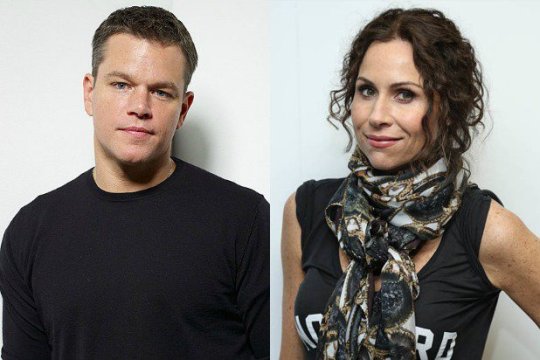
Rebutting Damon’s viewpoint, Driver (who had dated Damon, for awhile) berated Damon during a lengthy tirade in which she’d railed against the male species for failing to be sensitive toward women (as a whole) amid the rise of #MeToo.
On Feb. 20, Driver gave another interview where she once again lit into Matt Damon (seemingly unprompted). In a conversation with People’s Mike Miller, Driver name-dropped Damon by alleging that he “represented every intelligent, nice white male who feels it is their job to comment on the way that women metabolize stuff.”
She followed it up by ranting:
That somehow we should have a hierarchical system whereby touch on the arse is this, tits is this, you know, front bottom, back bottom, over the shirt, rape! That there would be some criteria...Women get to be heard. You get to be seen and heard and the accusers get to hear that and get to metabolize that and then there is due process and then there is healing.
Yet, she had also amended *those* quotations by insisting “there’s no way to move forward unless we do this together.”
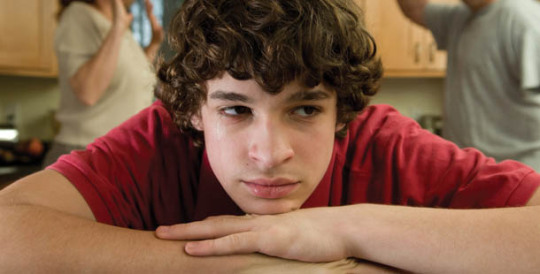
So, as a self-described “nasty male” who also happens to be white, myself...allow me to discuss why Driver and her ilk are full of shit.
First, let’s look at where the #MeToo movement could be headed. Most everyone would agree that the initial step should be to disempower the male authority figures who have faced allegations – Donald Trump, Harvey Weinstein, Larry Nassar, Matt Lauer, Kevin Spacey, James Toback, Bill Cosby, Mario Testino, Brett Ratner, Mark Halperin – from multiple victims whose claims are too numerous and too ubiquitous to be merely circumstantial.
Upon weeding out and overthrowing these offenders from their power positions, there will remain a whole different set of allegations under which the circumstances are murkier or grayer areas. Whether it’s Aziz Ansari engaging in predatory behavior or Justin Timberlake supposedly being tone-deaf to white male privilege – many of these scenarios are going to require a lot more intensive listening, debating, and introspection.
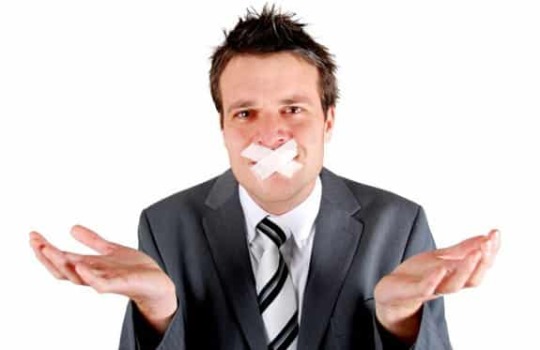
These “gray area” circumstances are what I believe that Matt Damon was trying to address, within his initial comments back in December. Do I agree with him? Partially. Rape and non-consensual groping are both serious offenses, but rape arguably warrants a much harsher punishment. I also agree with Minnie Driver when she says that the targets of either such act have the common right to be heard and see justice for the sins committed against them.
But acknowledging that there’s a “spectrum” of types of abuse is totally reasonable. After all, The View’s Sara Haines has expressed this viewpoint on multiple occasions during her daytime talk show’s daily panel discussions. Yet, Driver hasn’t raked Haines over the coals for having made those statements on The View.

What’s clear to me is that Driver is using whatever personal hostility she still wields toward Damon (in the aftermath of their breakup) – as well as the sentiments she harbors of misandry against males, in general – to make toxic blanket statements that reduce the discussion down to a male/female binary.
Damon didn’t express himself clearly. He probably would have been better off just keeping his mouth shut, since he’s evidently unable to articulate the nuances of his viewpoint. But if Driver thinks she’s some “crusading queen bee” by using sexist and racist language as an excuse to give Damon a public “dressing-down”...she is sadly mistaken.
Virtue-signaling much, Minnie?
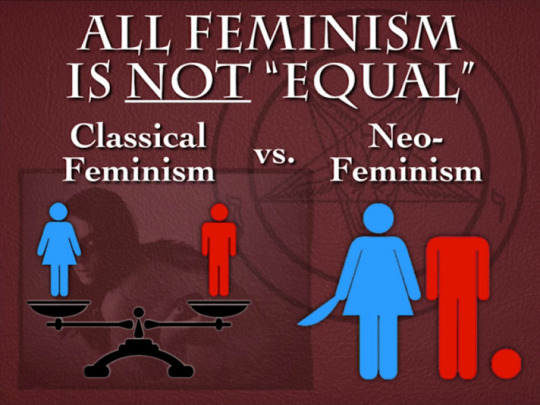
Other “feminist” voices out there have joined Minnie Driver in trying to perpetuate gender wars. Some of their motives (including Driver’s) might be well-meaning. They don’t want survivors of sexual assault, sexual harassment, and rape to be silenced by society (or by its misogynistic power players). They wish for survivors to overcome trauma and humiliation that they suffer in the aftermath of being victimized. They desire the cultivation of a society where our children aren’t conditioned to follow such rigid gender roles in the first place.
But the shrill segment of these voices who continue to frame the problem as strictly a “male-versus-female” conflict are, quite frankly, doing a disservice to the movement itself. In fact, they are creating the environment for a new binary culture (based on misandry, rather than misogyny) that will only exacerbate current tensions.

In early-January, Lindy West of The New York Times wrote a piece entitled “Why is Fixing Sexism Women’s Work?” The purpose of West’s op-ed was to examine the question of why it should be incumbent upon targets of sexual crimes (in the case of her own argument, women) to argue for their own safety and equality. She makes the case that high-profile men should join in the boycotts, surrender their wealth or power, and participate in self-deprecating acts in order to stand in solidarity with women.
It’s interesting that West makes these rather idyllic suggestions while praising the #TimesUp initiative. Since “Time’s Up” is an example of a constructive effort to empower survivors (and discourage the aggressive acts, themselves, from the onset), it’s unnecessary for West to take it upon herself to dictate the terms under which men (or boys) should participate in the #MeToo movement. She concludes her piece by saying it’s a male responsibility to abolish misogyny. What she conveniently omits, on the flip side, is a statement proclaiming how females also have a responsibility not to normalize “female exceptionalism” or a hypothetical societal matriarchy – probably because both West and Driver are guilty of this sentiment themselves, and would in fact desire to see it come to pass.
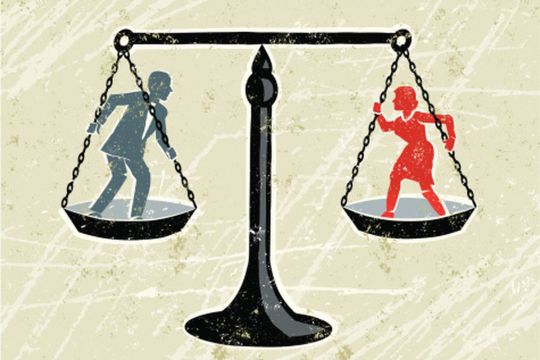
Misogyny is EVERYONE’S responsibility to eradicate. Powerful men have more influence when enacting institutional changes. But socially and culturally, gender-based power struggles are only going to be inflamed and misconstrued if we try to replace one rigid binary (misogyny) with another (misandry). The answer should be power-sharing and gender-neutral parity within our institutions; not gender-specific proclamations of exceptionalism or superiority.
A doctor wouldn’t treat/heal someone’s broken arm by proceeding to break someone else’s leg, right?
Now comes the point in the discussion where my critics will accuse me of harboring an #AllLivesMatter perspective. Such insistence, folks, would be a pathetic example of deflection on their part.

On the her VictimFocus blog, psychology researcher Jessica Eaton expresses frustration with how people try to derail the conversation (about violence or discrimination toward women) as what she refers to as “whataboutery” or “whataboutism.” Eaton recounts how she often gets personally attacked for empowering women and girls, even though she and her husband jointly run an organization called The Eaton Foundation to focus on male mental health issues. Just because Eaton wants emphasis to be placed on female needs, that doesn’t mean she hopes to see male needs neglected by default.
Here, Eaton accurately diagnoses the problem: patriarchy breeds male entitlement. She is rightfully angered by the double standard where she receives praise when she focuses on men’s issues but experiences a toxic backlash whenever she focuses on women’s issues.

Yet, there’s a crucial ingredient in the recipe that Eaton overlooks, even if only implicitly. Toxic masculinity, as most feminists would agree, has created and enabled androcentrism. But, frequently (although not 100% of the time), the ire that Eaton describes coming from many males is also due to society’s overall failure to combat “toxic masculinity” with “healthy masculinity.” Additionally, there’s a problem when we look at the dubious ways in which media commentators go about doing that (or, “fail to do that,” as the case may be).
This isn’t Eaton’s fault, at all. Nor is it the fault of female empowerment activists per se. Instead, it’s the fault of a one-sided media message that seeks to combat misogyny by placing “neofeminism” on some pedestal in the name of “evening things up.”
Eaton herself may not actually (or directly) be doing this. But Minnie Driver certainly is. Lindy West is veering extremely close to this zone. And many women (and some virtue-signaling men) do this within our society on a daily basis. This hateful defense mechanism isn’t any more justified than the misogynistic oppression that’s prevailed for centuries.
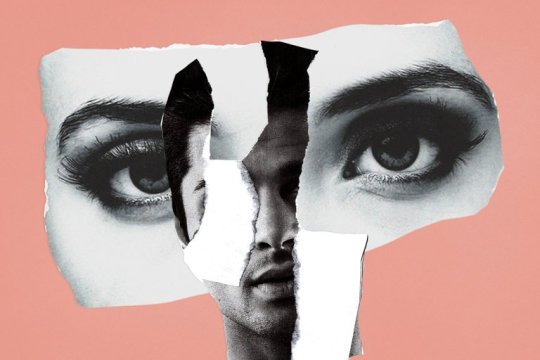
In a column for USA Today, Alia E. Dastagir criticizes the insinuation from many observers that an excess of false claims could threaten to derail the entire #MeToo movement. Dastagir calls out this false objection as an excuse for misogynists to discredit female survivors as gold-diggers or fame-seekers. She points out, in the words of UCLA gender studies professor Juliet Williams, that there’s a difference between “believe all women” and “believe women.”
Dastagir’s overriding point is that the stigma of “slut-shaming” generates a culture of self-consciousness and humiliation that can often deter victims from reporting the horrible acts committed against them. She’s right about this, unequivocally. But that stigma also extends to boys and men who are survivors of sexually-charged abuse, harassment, and rape. It extends to members of the LGBT community who also encounter such misogyny because we don’t fall into society’s neat little heteronormative boxes.
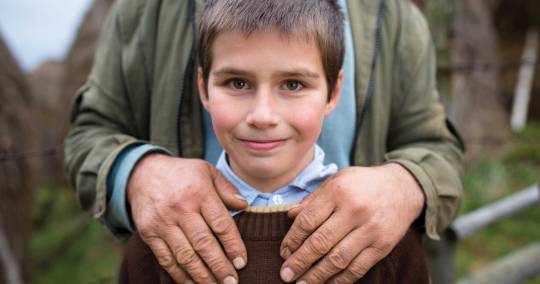
At this juncture in the discussion, Jessica Eaton would probably accuse me of “whataboutism.”
But to deny this reality is heterosexist and cissexist. It fails to acknowledge how white heterosexual cisgender females aren’t the only ones victimized by the misogynistic patriarchy that we all seemingly wish to transcend. And, no, Minnie Driver – throwing in some catty little reference to how Matt Damon happens to be a “white male” is NOT doing anything meaningful to rectify actual systemic inequities.
With any type of discrimination against any group, there can be copious factors involved. For example, gender-fluidity advocate and speaker Benjamin Di’Costa points out how religious fundamentalism so frequently exacerbates sexual trauma for LGBT survivors. It’s a tough process, he concedes, to reclaim confidence or one’s own sexuality in the aftermath of a sex crime. But unlike the various women whom I’ve previously cited, Di’Costa lifts up readers by reinforcing a message that finding the right lover is paramount for one’s happiness and sexual fulfillment. It’s essential, he argues, that any intimate relationship be based on making love with someone who will be sensitive to each of our own individual needs.
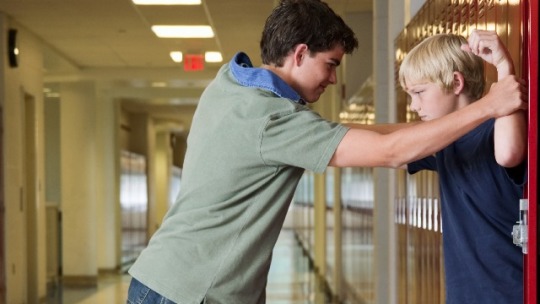
Dorothy Espalage, a Professor of Psychology at the University of Florida, conducted a five-year empirical study on how misogyny and toxicity snowball from childhood into adulthood. Bullies in middle school and high school, she generalizes, tend to be popular and powerful amongst their peers. There is also a correlation between sexual harassment and bullying in adolescent perpetrators...starting in their K-12 years, and continuing into their adult-based careers and sex lives.
Espalage’s research identifies homophobic invective (such as “gay” or “fag”) inflicted upon students in a negative context when bullying occurs in elementary, middle, and high schools. The common denominator is that “such homophobic language is used to assert power over other students” and “set the stage for the development of sexual harassment.” Such mistreatment is exerted, according to Espalage, when female students fail to act “feminine” enough or when male students fail to act “masculine” enough.
She does acknowledge that boys (in schools) are more often the aggressors, especially when it comes to physical assault. But, nonetheless, both girls and boys report being targeted by such aggression. Espalage recommends Social-Emotional Learning (SEL) programs that “use activities and the teaching of skills like empathy, anger management, problem-solving, communication skills, impulse control, etc.”

And just last week, Cathy Young (reporting for the Los Angeles Times) found that reporters of sexual assault – even amongst adults – have been as high as 40% male (with attackers being females) within studied populations. As documented by Young:
Scholars studying the subject have been attacked as apologists for misogyny. Battered women’s advocates tend to explain away female violence as almost entirely defensive, despite evidence to the contrary. One reason for this attitude is solidarity with women as victims; another is the dogmatic view that battering is an expression of patriarchal power...Abused men have faced widespread biases from police, judges and social workers, who tend to assume that the man in a violent relationship is the aggressor and to trivialize assaults by women. Much of this prejudice stems from traditional sexism: battered men violate stereotypical expectations about manliness. Yet, feminists perpetuate such sexism when they deny the reality of male victims and female abusers. Equality should include recognizing women’s potential for abusive behavior.
Female-on-male violence is often assumed to be harmless, given sex differences in size and strength. Yet women may use weapons – including knives, glass, boiling water and various household objects – while men may be held back from defending themselves by cultural taboos against harming woman. Overall, studies find that female-on-male assaults account for 12% to 40% of injuries from domestic violence...Men also make up about 30% of intimate homicide victims, not counting confirmed cases of female self-defense.

Solving this problem – including all of the scenarios and epidemics that are being called out by the #MeToo movement – is complex...and requires all hands on deck. I say this as a male survivor of various sex crimes, myself. This is why you will never be able to convince me that the #MeToo movement should only include female voices. That doesn’t mean we shouldn’t combat misogyny and the patriarchy – of course we should! Misogyny and patriarchal “ideals” are what have gotten us to this undesirable point, in the first place.
But the initial step is much more nuanced and multifaceted than Minnie Driver would have us believe...
Again, as I stated in my November op-ed: this isn’t an #AllLivesMatter argument. If you try to accuse me of making an #AllLivesMatter argument, *YOU* are part of the problem.

I fully anticipate getting peppered with heaps of statistics and case studies emphasizing frequency and quantity over individual crimes. It’s funny that a lot of those same people are the ones who decry “slut-shaming” – even while they simultaneously try to “sissy-shame” or “male-shame” my voice into submission. They will invoke “white male privilege” without giving one iota of consideration to what I’ve been through in my life.
But, until the day I die, I’ll continue demanding a voice for anyone who is silenced.
Penis or vagina.
Pale or tan.
Old or young.
Straight, gay, or bi.
Cis or trans.
Wealthy or poor.
Big or small.
Tall or short.
Monotheist, atheist, polytheist, or agnostic.
Able-bodied or otherwise.

That isn’t an #AllLivesMatter approach – it’s called compassion. It’s called embracing equality at its core. It’s called being a human being.
The party line (or company line) from The Minnie Driver Brigade is that males shouldn’t get to have a voice in this conversation by virtue of the fact that we are males. They insist that it is our turn to be silenced and our turn to listen. Yet, despite their proclamations of desiring social justice, they don’t seem to have any problem with letting white, heterosexual, cisgender females take it upon themselves to try to begin controlling the narrative.
I will never stop calling out that type of stance (expressed by such an archetype) as being heterosexist, cissexist, ageist, racist, and ableist.
If that makes me a “nasty gentleman”...I plead guilty. And damn proud of it, too!
0 notes